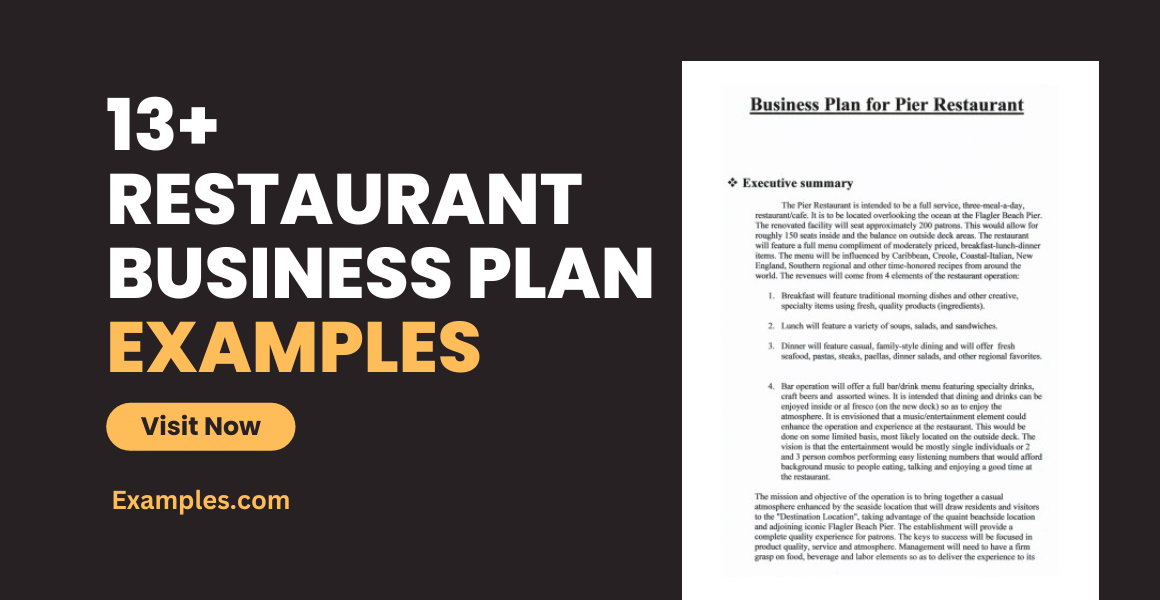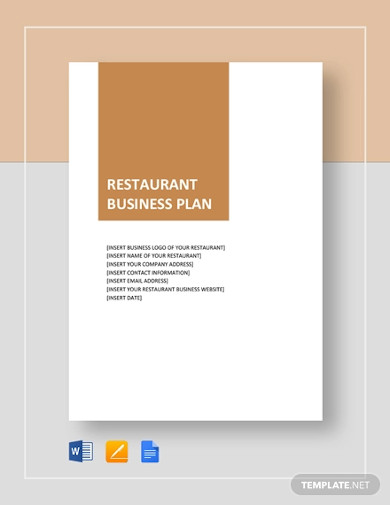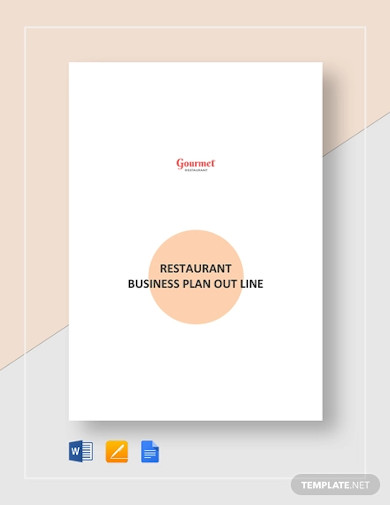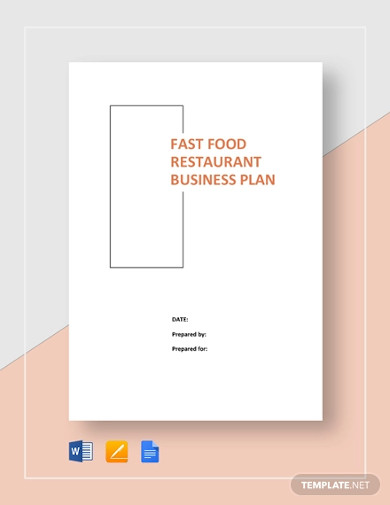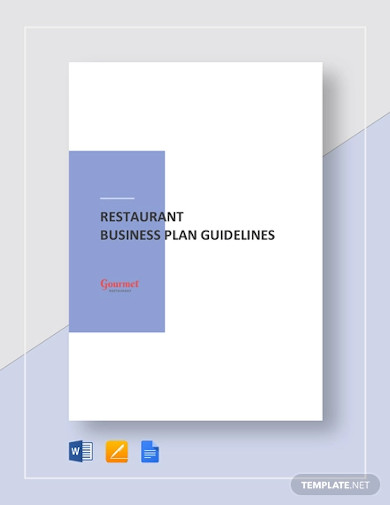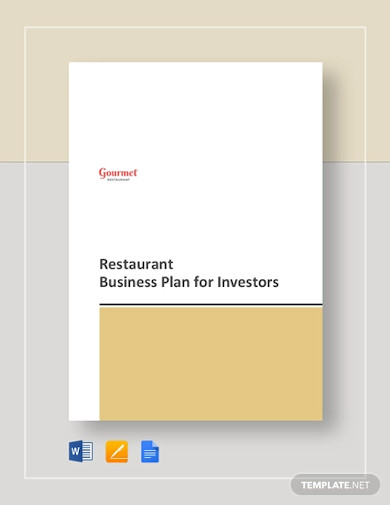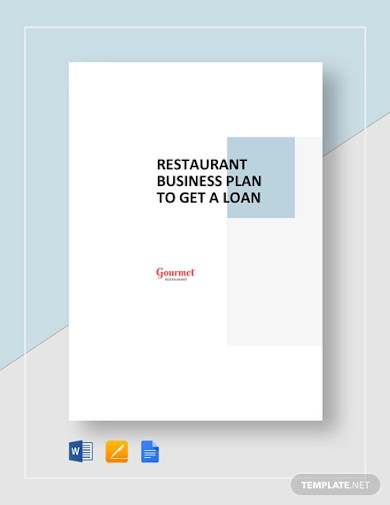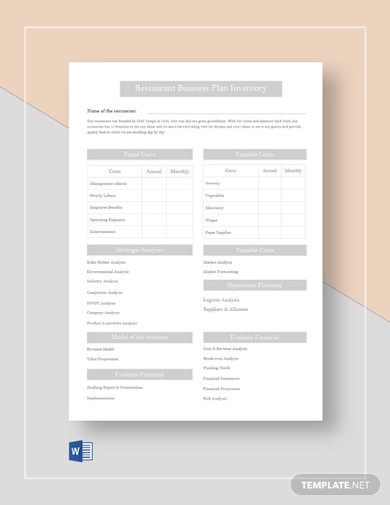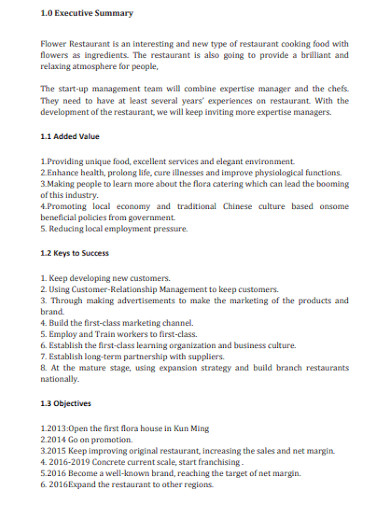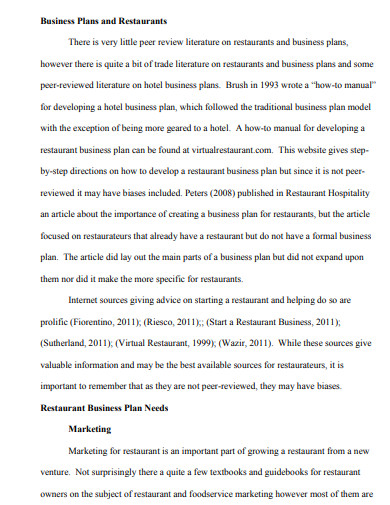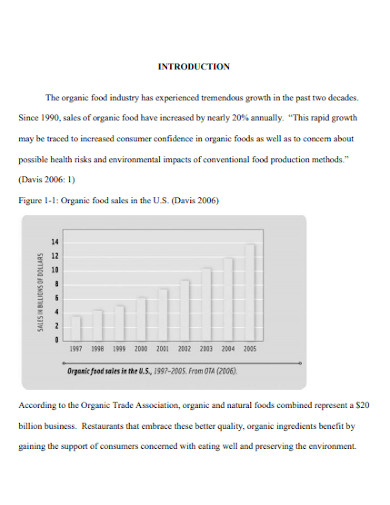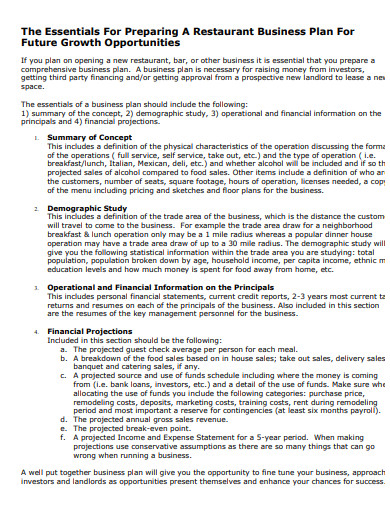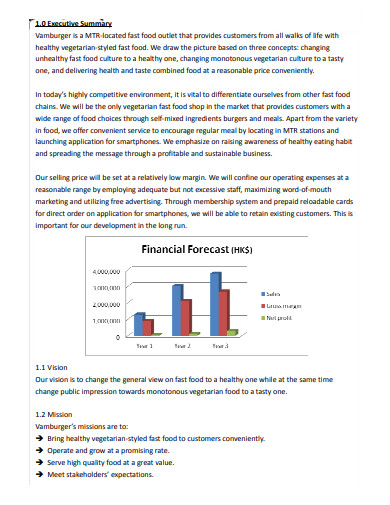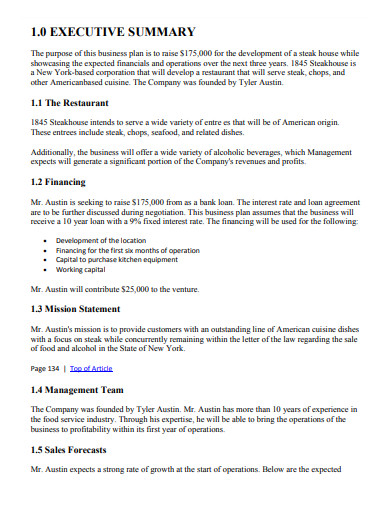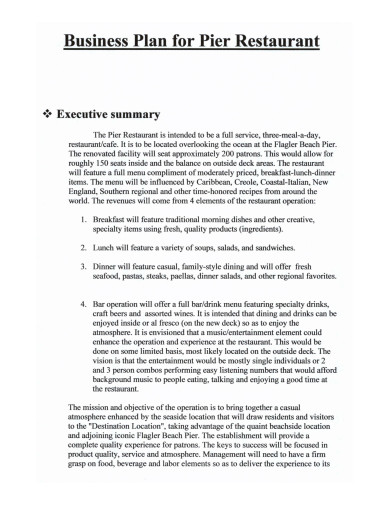13+ Restaurant Business Plan Examples
The National Restaurant Association (NRA) recently released its restaurant industry report. It revealed that the industry has grown by 4% since last year, reaching the market worth of USD 899 billion for this year. For entrepreneurs who aim to open up a restaurant, whether fast food, fine dining, family restaurant, or other types, now seems like a good time to do so. If you are among these businessmen, then guarantee your startup or small business’s success with a restaurant business plan. There’s no need for you to look for good examples of business plans elsewhere because we have a complete list ready for you below! What’s more? They cover all areas that must be considered in restaurant management. These areas include the target market, pricing strategy, SWOT analysis, market analysis, and financial agenda. To know more, read our article below!
What is a Restaurant Business Plan?
A restaurant business plan is a process document that highlights the operational and financial ambitions of a restaurant business idea, as well as the strategies on how to achieve them. Susan Ward, in her article entitled “Why You Should Write a Business Plan,” cited five reasons why a business plan is essential for entrepreneurs. First, it ascertains any business idea’s viability. Second, it increases the chances of new businesses to become successful. Third, it helps businessmen acquire capital. Fourth, it gives stakeholders more control over the planning phase. Lastly, it lures many investors. Whether these thoughts are true or not, we all know that having a plan on how to open up a restaurant is better than having none.
What is the Best Example of Restaurant Business Plan?
Here is an Example of a Restaurant Business Plan:
Best Examples of a Restaurant Business Plan:
An exemplary restaurant business plan should be comprehensive, well-structured, and tailored to the specific concept and market of the restaurant. Here’s a detailed explanation of what constitutes an ideal restaurant business plan:
Executive Summary
- Concept Overview: For example, a farm-to-table restaurant focusing on organic, locally sourced ingredients.
- Mission Statement: A clear, compelling statement, e.g., “To provide fresh, healthy, locally sourced meals in a sustainable and community-focused environment.”
- Key Information: Location, ownership, unique selling propositions, and anticipated opening date.
Company Description
- Restaurant’s Background: A story about the inspiration behind the restaurant, possibly inspired by local farming traditions.
- Goals: Clear objectives, like becoming the leading organic eatery in the area within three years.
- Target Market: A specific demographic, such as health-conscious families and environmentally-aware diners.
Market Analysis
- Industry Insights: Current trends in the organic dining sector and how they apply to the local area.
- Demographics: Detailed analysis of the local population, focusing on health trends and income levels.
- Competitive Analysis: Assessment of local competitors, with strategies to offer something unique, like exclusive organic dishes.
Menu and Services
- Menu Details: A draft menu showcasing organic, seasonal dishes with innovative recipes.
- Additional Services: Details on catering, special events, and partnerships with local farms and businesses.
Marketing and Sales Strategy
- Marketing Tactics: Strategies like community events, partnerships with local businesses, and a strong social media presence.
- Sales Projections: Realistic goals based on market research, with strategies for both slow and peak periods.
Management and Staffing Plan
- Management Team: Bios of key team members, highlighting experience in the organic food industry and local community engagement.
- Staffing Details: Plans for hiring chefs, servers, and support staff, with a focus on experience in organic restaurants.
Operational Plan
- Daily Operations: Outline of the sourcing, preparation, and service processes, emphasizing efficiency and sustainability.
- Facility Requirements: Description of the ideal location, kitchen layout, and environmentally-friendly equipment.
Financial Analysis
- Startup Expenses: Detailed budget for setting up the restaurant, including eco-friendly renovations and organic certification costs.
- Revenue Forecast: Projected earnings based on market analysis, with various scenarios.
- Expense Breakdown: Monthly operating costs, including sustainable packaging and fair wages.
- Profit and Loss Projection: Estimated profitability over the first few years, considering seasonal variations.
Funding Requirements
- Capital Needs: Total funding required, with a plan for its allocation.
- Funding Sources: Potential investors, grants for sustainable businesses, and loan options.
Appendix
- Supplementary Materials: Market research data, sample menus, and marketing materials.
This example illustrates a business plan for a farm-to-table, organic restaurant. The key to an effective business plan lies in its specificity to the restaurant’s concept and its comprehensive nature, covering every aspect from the concept to operational and financial planning.
13+ Restaurant Business Plan Examples
1. Restaurant Business Plan
2. Restaurant Business Plan Outline
3. Food Restaurant Business Plan
4. Sample Restaurant Business Plan
5. Restaurant Business Plan for Investors
6. Restaurant Business Plan To Get A Loan
7. Restaurant Business Plan Inventory
8. Small Restaurant Business Plan Sample
9. Breakfast Restaurant Business Plan
10. Business Plan for Restaurant Example
11. Restaurant Business Plan Example
12. Executive Summary for Restaurant Business Plan
13. Restaurant Business Plan Sample
14. Business Plan for Restaurant Example
How to Write a Business Plan for a Restaurant?
Writing a business plan for a restaurant involves detailed planning and clear articulation of your concept, market strategic plan, and financial projections. Follow these step-by-step guidelines to create a comprehensive and effective plan.
Here is a step-by-step guide:
Step 1: Executive Summary
- Concept Description: Clearly define your restaurant’s concept, including the type of cuisine, ambiance, and unique selling propositions.
- Mission Statement: Craft a mission statement that encapsulates the essence and goals of your restaurant.
- Key Details: Provide basic information such as the proposed location, ownership details, and the expected date of operation commencement.
Step 2: Company Overview
- Restaurant’s Background: Share the story or inspiration behind your restaurant.
- Business Objectives: Outline specific, measurable, achievable, relevant, and time-bound (SMART) goals.
- Target Market: Identify your primary customers – who they are and why they would choose your restaurant.
Step 3: Market Analysis
- Industry Overview: Analyze the restaurant industry, particularly in your proposed location, including trends and forecasts.
- Target Market Demographics: Detail the specific demographics of your target audience, like age, income level, dining preferences.
- Competition Analysis: Assess direct and indirect competitors, their strengths and weaknesses, and how your restaurant will stand out.
Step 4: Menu Design and Service Offering
- Draft Menu: Outline a preliminary menu. Include a range of offerings while maintaining focus on your unique concept.
- Service Style: Describe the type of service (e.g., fast-casual, fine dining) and any additional services like catering or delivery.
Step 5: Marketing and Sales Strategy
- Marketing Plan: Develop strategies for promoting your restaurant, including branding, advertising channels, and promotional activities.
- Sales Strategy: Outline how you will generate and grow sales, including pricing strategy and customer loyalty programs.
Step 6: Operational Plan
- Daily Operations: Describe the operational workflow of the restaurant, from supply chain management to customer service.
- Facility Needs: Detail the physical requirements of your restaurant, including location, size, kitchen equipment, and dining area layout.
Step 7: Management and Organizational Structure
- Management Team: Introduce your management team, highlighting relevant experience and skills.
- Staffing Plan: Outline your staffing requirements, including kitchen staff, servers, and administrative personnel.
Step 8: Financial Projection and Analysis
- Startup Costs: Provide a detailed breakdown of startup expenses, including kitchen equipment, renovation costs, and initial inventory.
- Revenue Projections: Estimate your revenue for the first few years. Be realistic in your assumptions.
- Expense Forecast: Include an itemized list of ongoing operational expenses.
- Profit and Loss Projection: Showcase a projected profit and loss statement, highlighting when your restaurant is expected to break even.
Step 9: Funding Requirements
- Capital Needs: Clearly state the total amount of capital required to start and sustain the restaurant until it becomes profitable.
- Funding Plan: Identify potential sources of funding, such as loans, investors, or personal savings.
Step 10: Appendix
- Supporting Documents: Attach any additional documents like detailed market research, sample menus, or architectural plans for the restaurant.
Creating a well-structured business plan is critical for the success of your restaurant. It serves as a blueprint for your business and is essential for securing funding and guiding your restaurant towards its goals.
Ghost Restaurants
Zombies, werewolves, and other creepy creatures are truly spine-chilling and, at the same time, fascinating. However, they have nothing to do with ghost restaurants. Ghost restaurants also go by the name virtual restaurants or cloud kitchens. They are food service industry players that only cater to to-go orders. Mostly, the main candidates in their respective target market worksheets are the people who want to taste restaurant-made dishes but are too busy to visit one. For business-minded individuals, such a business idea is very convenient. Aside from a very low startup capital, its marketing is mainly done online. Speaking of online marketing, you can check out our Online Marketing Guide For Your Startup.
How To Organize a Restaurant Business Plan?
Creating a company business plan for your dream restaurant is surely complicated. Aside from making sure to follow the standardized document flow, you also have to write their corresponding details in a concise manner. To save you time from researching the document’s standard composition, we have provided you with an outline of the necessary steps below.
1. Present the Executive Summary:
The business plan executive summary is where you give out the main points of your process document. These points should be written briefly yet thoroughly. In addition, this part is the very first section of all business plans. However, many of the technical writers prefer writing them last.
2. Propose Business Opportunity:
After presenting the executive summary, you can advance your idea of a profitable restaurant. This section should answer what market needs will the business be providing to the consumers. Furthermore, the complete target market analysis, SWOT analysis, competitive analysis, and their results should also be included in this section.
3. Layout Implementation Procedures:
Once you have successfully proposed the details of your restaurant idea, lay out the full specifications of how to achieve the business’s sustainability and profitability. To do this, you have to create a marketing and sales plan that comes with restaurant sales and marketing strategies.
4. Mention Stakeholders:
Restaurants, just like other businesses, are composed of many stakeholders, such as sales manager, marketing manager, financial manager, and many more. To completely know who to include, you should check out our stakeholders analysis and questionnaire examples.
5. Advance Financial Draft:
In this last step, you have to know what finance essentials for a small business are. Moreover, it is in this part where you have to project plan your restaurant’s annual budget. Additionally, this part is very useful when you are trying to convince a prospective investor. By giving them an overview of your business idea’s estimated cash flow, they can better decide whether to invest in your proposal or not.
FAQs:
How Do You Define a Restaurant’s Concept in a Business Plan?
Define a restaurant’s concept by detailing its cuisine type, service style, unique selling propositions, and overall customer experience vision.
What Should Be Included in a Restaurant Market Analysis?
Include industry trends, target market demographics, competitor analysis, and customer preferences in a restaurant’s market analysis.
How to Create a Marketing Strategy for a Restaurant?
Create a marketing strategy focusing on brand positioning, advertising channels, promotional tactics, and customer engagement plans.
What Financial Projections are Needed in a Restaurant Business Plan?
Financial projections should include startup costs, revenue forecasts, cash flow estimates, and profit and loss projections.
How Do You Determine the Staffing Needs of a Restaurant?
Determine staffing needs based on restaurant size, service style, and operational requirements, including kitchen and front-of-house personnel.
What are the Key Components of a Restaurant Operational Plan?
Key components include daily operations, supply chain management, facility layout, equipment needs, and health and safety protocols.
How to Identify Funding Requirements for a Restaurant?
Identify funding requirements by calculating total startup costs, operating expenses, and cushion funds for unforeseen expenses.
What Makes a Restaurant Business Plan Successful?
A successful restaurant business plan is realistic, detailed, adaptable, and customer-focused, with clear financial and operational strategies.
Why is a Business Plan Important for a Restaurant?
A business plan is vital for a restaurant to define its direction, secure funding, manage operations effectively, and strategize for growth and profitability.
How much does it cost to open a new restaurant?
In the Restaurant Owner’s survey, it was found out that small-scale restaurants can be achieved with only USD 175,000. On the contrary, large-scales will need an approximate amount of USD 750,500. These give us the average start-up cost of USD 375,500.
How to Create a Financial Plan for a Restaurant?
To create a financial plan, estimate startup costs, project revenues and expenses, and forecast profit and loss to ensure financial feasibility and sustainability.
What to Include in a Restaurant Marketing Plan?
Include branding strategy, target market analysis, promotional tactics, social media plans, and customer retention strategies in a restaurant marketing plan.
Which city in the United States is the best place to open a new restaurant?
By far, Cedar Park, Austin is the best place in the United States to start a restaurant. History has it that the restaurants’ growth from 2002 to 2007 marked 107.89%. This is because of the continuous growth in the residential population. Today, the growth of the two groups still continues.
Conclusion:
Planning is very essential for a business. Abraham Lincoln even uttered the saying, “Give me six hours to chop down a tree and I will spend the first four sharpening the axe.” Business planning is deemed very important for various reasons. Based on what was mentioned above, such preparation makes the creation of a business and its management more convenient. Moreover, its product, the business plan, is very important in obtaining the necessary financial means to support business ideas. When it comes to organizing such a document, it was established that it won’t be easy. But by following the standard format, making one won’t be much of a hassle. In conclusion, providing a business plan, especially for your restaurant, comes with challenges. And, it takes the right article to overcome such challenges through examples and insightful guidelines.


